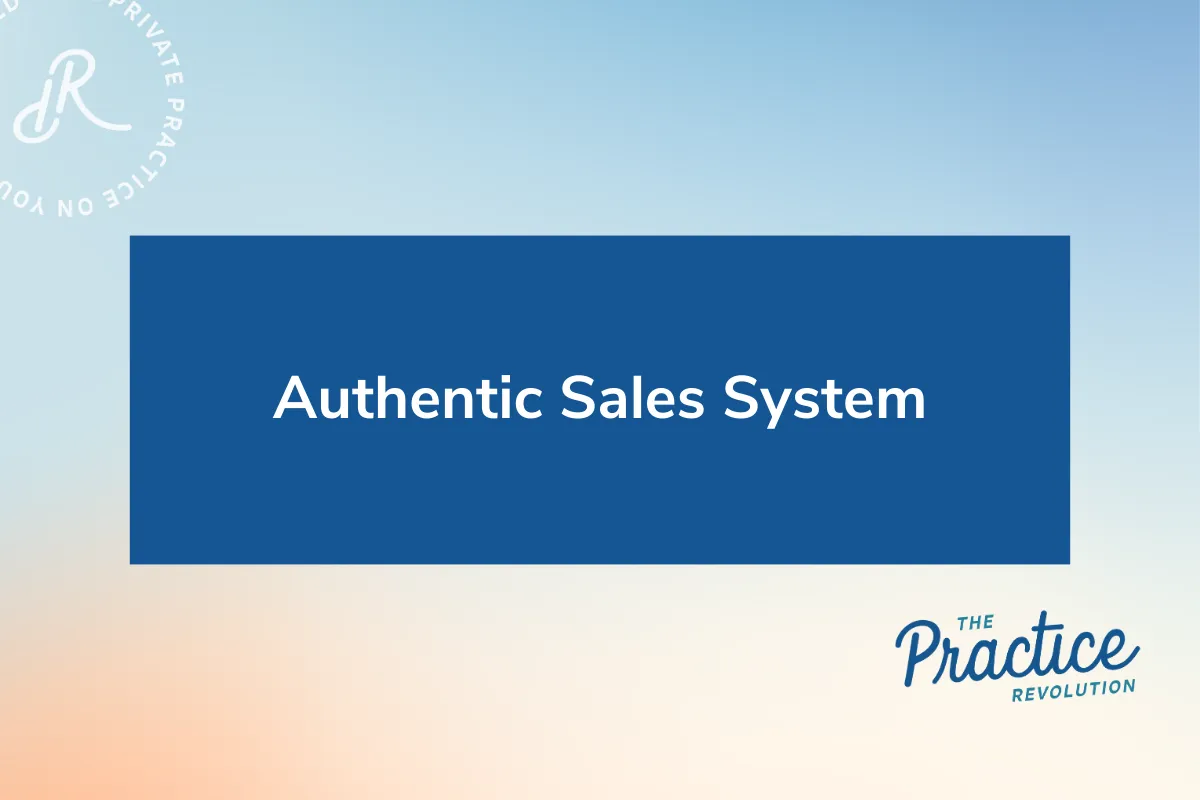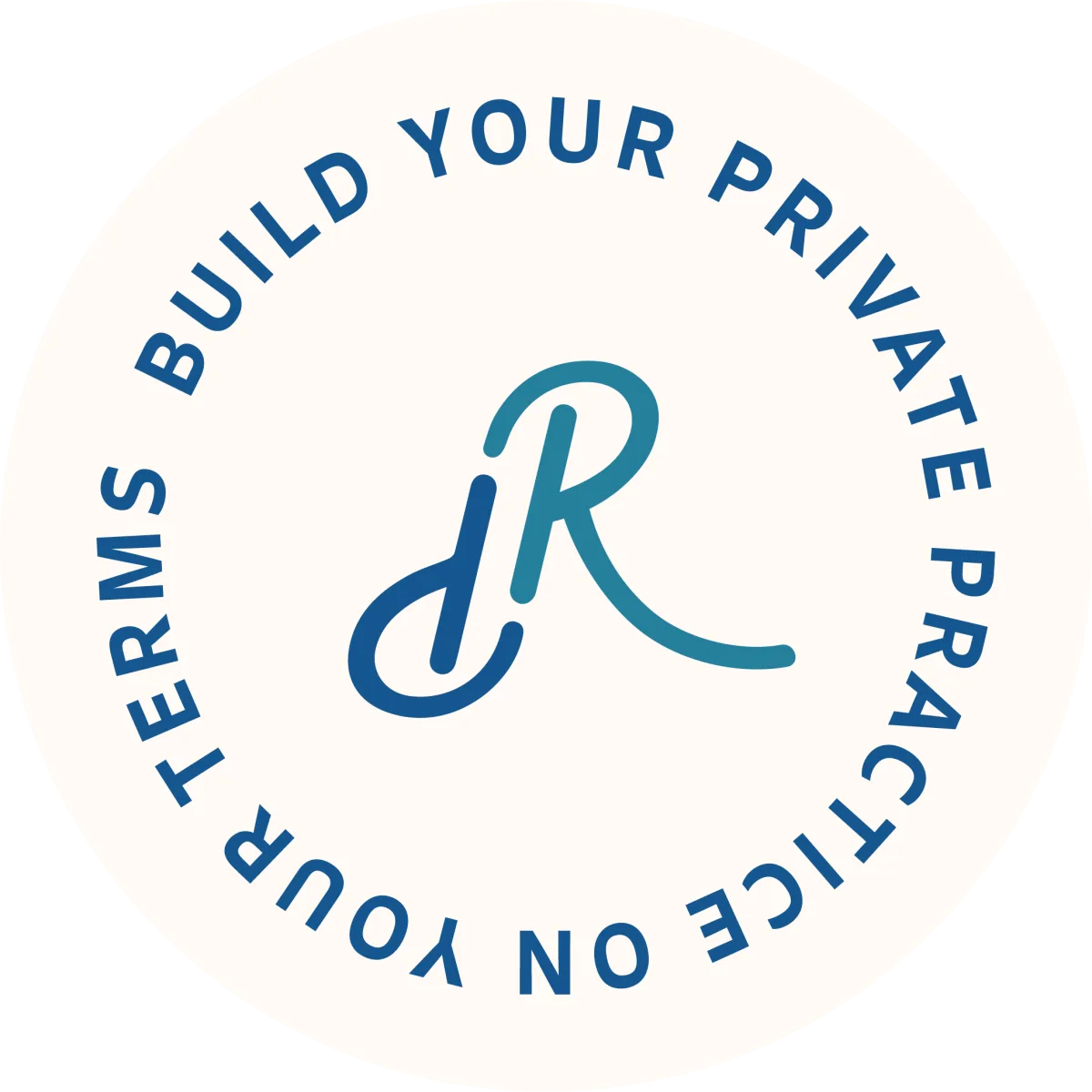Contact Us
Kind Words From
Kind People...
ARTICLES
Advice, tips & stories that will help you build your online nutrition business

The Authentic Sales System
Struggling with sales? You're not alone. Many of us have encountered sales experiences that left us feeling uncomfortable. This discomfort often stems from a disconnect between the importance of sales in helping people and sustaining a business and the negative perceptions we might have developed.
Handling objections like "I don't have the time" or "It's too expensive" can seriously dent your confidence, making you question your abilities and worth. But remember, you can overcome this by bridging the gap between your perception of sales and your actual sales process.
To grasp the essence of the sales process, it's crucial to realize that sales is all about energy exchange. Once you embrace this concept, your sales conversations will take on a more positive vibe. We'll guide you through the step-by-step process that helps our clients feel genuinely enthusiastic about sales.
When you radiate positivity during these conversations, you'll naturally yield better results. This means more people will choose to work with you, allowing you to assist even more individuals.
However, before you can ethically influence others, you must first master self-influence. When we discuss energy in sales, it's imperative to start by cultivating your own positive energy.
So, how do you go about influencing yourself positively in sales? This is the pivotal question we'll address.

So, how do you go about influencing yourself positively in sales?
'50 Reasons Why' Exercise
This exercise involves listing 50 benefits that people receive from working with you. For example, if you're a nutrition professional, a benefit like weight loss can lead to improved confidence, better social interactions, and enhanced health. By doing this exercise, your belief in your ability to help people grows, leading to more positive actions in sales conversations.
We use this exercise with our clients to boost their confidence in the sales process and the value of their services. When you genuinely believe in what you offer, it resonates with your potential clients, making them more receptive.
Ultimately, this exercise changes how you perceive your role, making you more effective in influencing others positively. It's a powerful tool to boost your confidence and enhance your sales approach.
Sales is a Transfer of 4 Things:
CLARITY
It's crucial to maintain absolute clarity about the value you provide to individuals and the assistance you offer. For instance, let's take our concise message: We empower dietitians and nutrition coaches to replace their current income, liberate themselves from traditional employment, and reach a monthly earnings level of $10,000 to $20,000, or more. This message is exceptionally lucid.CERTAINTY
You must possess the ability to convey your unwavering confidence because if you harbor doubts, rest assured, the other person will also doubt your capacity to assist them. So, how can we bolster our certainty? One effective approach involves reflecting on all the individuals you've aided in the past, regardless of whether it was within your own business, during your student days, or among your friends and family. These instances where you delivered exceptional results serve as a testament to your capabilities. You might even draw upon your personal journey, acknowledging that you've navigated through challenges and arrived at a point where you can unequivocally assert your ability to guide someone else along the same path. The key is to effectively transmit this sense of assurance to others.CONFIDENCE
Do you believe that the 50 reasons for exercising could also enhance your self-assurance in your role of assisting others? Undoubtedly, yes. When engaging in these discussions, you must exude confidence – confidence in your problem-solving capabilities and confidence in your capacity to support individuals based on your previous experiences. You've successfully navigated this path before, armed with the expertise gained from your education and interactions with people. Confidence is inherent within you, and it's essential to carry it with you during these conversations.TRUST
It's imperative that they develop a sense of trust. First and foremost, they must trust in the process. Secondly, they need to place trust in themselves. Thus, we're passing on this trust-driven energy to them. To accomplish this, we must initially believe in ourselves, in the effectiveness of our process, and in the potential of the individuals we're working with.
3 Levels of Conversation
There are only two reasons that you should ever speak during a sales call. One of the biggest mistakes that we see people make is talking the entire time. They talk 80% of the time, and they let the potential client, the person that they're going to serve, talk 20% of the time. It should be the complete opposite. Reason number one is you have to have a deeper level conversation. The only other time that we speak in a conversation when we're looking to enroll someone in our services is to pre handle potential objections.
SURFACE LEVEL
The Surface level usually goes like this: You ask the person, "What would you like to achieve? What are your goals?" They respond, saying something like, "I want to lose weight." If you stop at this point without going deeper, you won't get many people to sign up.So, before presenting your offer, you need to have a more meaningful conversation, what we'll call a "level three conversation." You must address common issues and objections. If you're not getting the sales you want or struggling to enroll more clients, and if many people are saying no or making excuses, it's likely because you've only had a surface-level chat with them. They've simply told you things like, "I want to lose weight," "I want to feel better about my body," or "I want to continue enjoying my favorite foods," but you haven't delved deeper into their needs and concerns.
ACTION LEVEL
They could express it as, "I want to shed pounds to boost my self-confidence in life." Notice that there's a specific action tied to their goal – gaining more confidence. While this is a step in the right direction, can we go even further? Absolutely, we can. Our aim is to guide individuals to a deeper, third-level understanding of their aspirations.TRANSFORMATIONAL LEVEL
These are the things that really drive people to take action. If you want to genuinely help people, you should aim to take them to a deeper level of understanding, which is the third level.In this deeper conversation, it might go something like this: "I want to lose weight so I can be more confident and open to meeting new people. Maybe I hope to find a partner and start a family." Now, why is this so important to you? "Well, it's because I've been alone for a long time, and it hasn't been fulfilling. I want someone to share my life with, and I believe it's time for a change." This conversation explores deeper desires and motivations, and it's crucial to guide people to this level if you want to help them effectively.
Here's a valuable lesson from one of my exceptional coaches, Eli Wilde, and his partner, Eli Sanchez. They have provided us with crucial insights.
In sales, our goal is to handle objections effectively. However, an even better approach is to pre-handle objections, preventing them from arising in the first place. I will discuss the three main objections related to time, finances, and spousal approval, although there are a few more objections to consider.
Imagine this scenario: Behind you, there's a closed door, while the prospect has three open doors behind them. Our objective is to guide them in closing those open doors, so the only path they see is through your open door.
People tend to stay within their comfort zones due to fear and uncertainty, hindering their progress in life. Our role is to help them close their own doors so that the only direction left is toward their dreams.
So, how do we close these doors even before objections are raised? It's about asking questions that lead them to do it themselves. For instance, if someone says, "I don't have the time," we can inquire earlier in the conversation, "You've mentioned struggling with this challenge for some time. Why has it become a priority for you now?" This questioning approach encourages them to explain why they now have the time, aligning their goals with their own reasons.
By employing such strategies, we aim to guide people on a transformational journey, helping them recognize the need for change on their own terms. We want to ensure they are committed and will put in the effort required for success, as it's crucial for them to get results. This process resembles motivational interviewing, which can be very powerful.

5 Step Objection Handling Process
Here's a strategy to minimize objections, and if you do encounter objections, let's discuss how to address them effectively. When you reach this point and objections arise, especially those like "I don't have the time" or "I don't have the money," follow these steps in the specified order. Pay close attention because this can significantly enhance your sales results.
1. Our first step is to fully understand the objection they raise. Sometimes, people might use excuses like consulting a spouse when they're actually unsure or hesitant. It's natural to feel some resistance when making significant life changes, but it's important to embrace discomfort for personal growth.
To understand their objection, we remain silent initially and then ask for clarification. For instance, if someone says it's not the right time, we might inquire, "What does that mean for you?" We aim to gain clarity about their objections, as they might perceive timing issues differently. It's essential to recognize that there's never a "perfect" time for change, so understanding their unique perspective is crucial.
2. Isolate the objection
After understanding the objection, our next step is to isolate the objection. Pinpoint it precisely, clarifying their level of interest. For instance, when faced with a time-related objection, we might inquire, "When you mention needing to think about it, is this because you're already interested and just need time to consider, or are there other factors you need to weigh?" We seek clarity: either they are ready to proceed but require some thinking time, or there's a specific concern such as finances, spouse approval, or doubts about the program's suitability. It's only when we uncover the real objection that we can assist them in moving forward.
3. Appreciate the Objection
After identifying the objection, it's important to show appreciation for it. You can convey this by saying, "Susie, I want to thank you for being open about needing some time to consider your decision. I appreciate your honesty, and I'm here to support you in your decision-making process."
4. Realign them to what they told us at the beginning
This is the point where we guide them back to their initial priorities because they may have lost sight of them during the conversation. We might say something like, "Suzy, I completely understand your need to think about it. Let me ask you, how long have you been contemplating making changes to feel more confident, improve your relationships, enjoy outings with friends, overcome mental blocks, and start the family you've been desiring for years? Has it been, say, five years?"
In this way, we're helping them reorient themselves, emphasizing that they've been seeking a solution for these concerns for a considerable period. It highlights the fact that further delay won't benefit them but could hinder their progress. To make this point clear, we need to bring it up because it's easy for them to forget otherwise.
5. Ask for the decision
In the five-step objection handling process, this step involves seeking a decision. If objections have come up, it's crucial to ask for a decision in a smart and leadership-oriented manner. You can ask questions like, "Do you see how addressing this issue can greatly improve your life?" After they respond positively, inquire further, asking why it's important to them right now. Once you have their reasons, smoothly move towards closing the deal by saying something like, "Let's make this positive change now. How would you like to make the payment?"
This approach utilizes their own motivations to guide them towards a decision, breaking the cycle of indecision. Many individuals tend to remain stuck in their old routines, yearning for change but finding excuses to delay it. As compassionate individuals, we must embrace this process, develop the necessary skills, and recognize its potential for not only growing our businesses but also making a significant impact on people's lives. As you become skilled in this, you'll find immense satisfaction in witnessing the transformations you facilitate.
One final point to emphasize: it's crucial to collect payments promptly because the transformation only occurs once the transaction is completed. Failure to do so may lead to being ignored, frustration, and the temptation to return to your previous job, which is not in your best interest.
Remember, in business, it's a standard practice to request payment over the phone or on Zoom, just like when you order from a restaurant for delivery. They ask for your credit card information as a routine procedure. Taking payments in this manner can save you from unanswered objections. If objections go unaddressed, potential clients might lose interest, and you miss the opportunity to genuinely assist them. So, don't hesitate to have authentic, meaningful conversations over the phone and help transform lives.
If you found this blog valuable and want to delve deeper into this process to help more people, please click here to book your FREE 15-min call. We'll reach out to you to understand your specific sales process challenges and provide deeper insights. If you're interested in more personalized solutions, we can discuss that as well.
Want to learn more? Watch the video below!
The Authentic Sales System
Our Mission
We’re on a mission to help registered dietitians and certified nutrition coaches build + scale their private practice to increase their income and impact. Get ready to build the career you’ve always wanted, while inviting more freedom and flexibility into your life.

©2024 Carlin Consulting LLC | All Rights Reserved | Brand Credits






